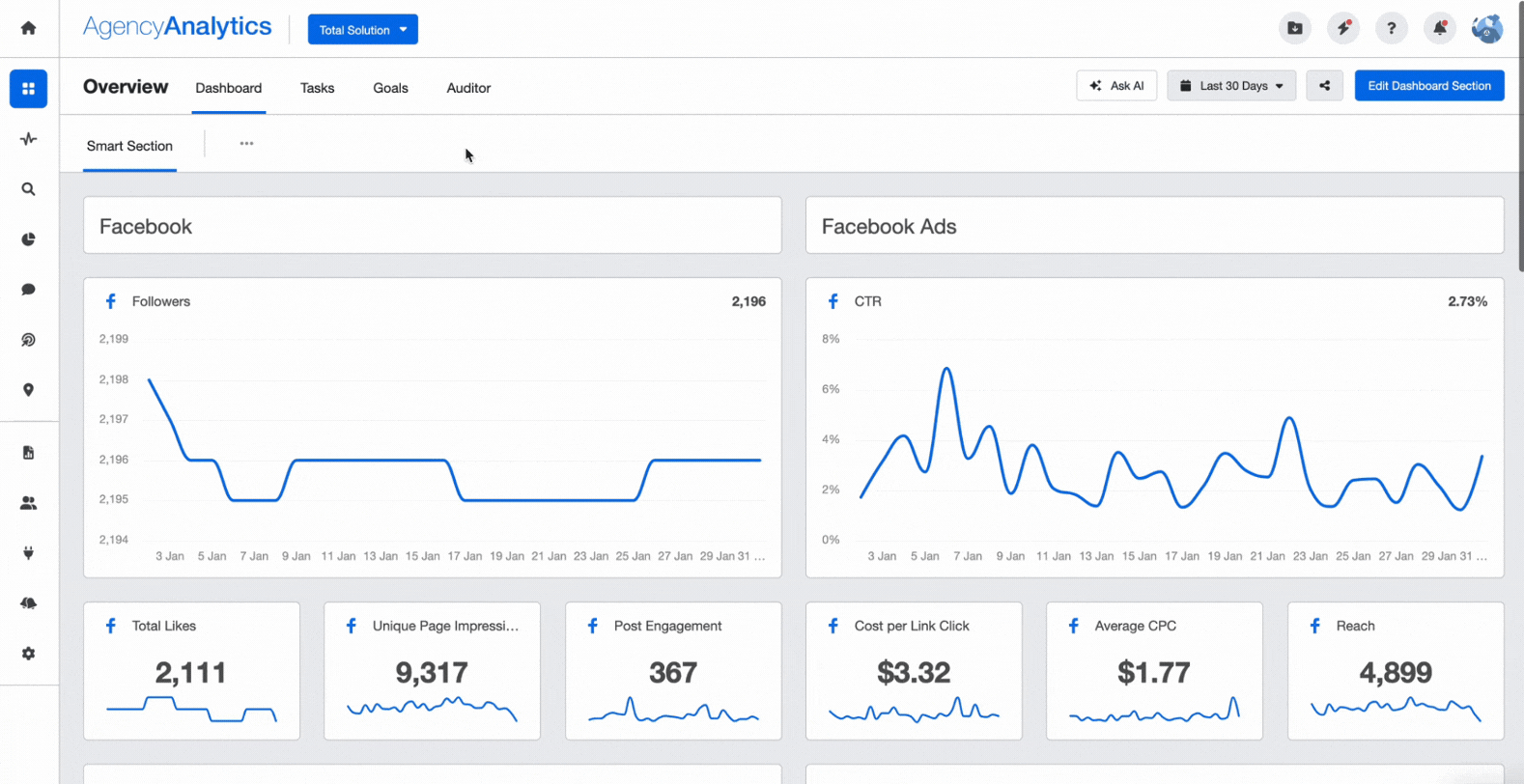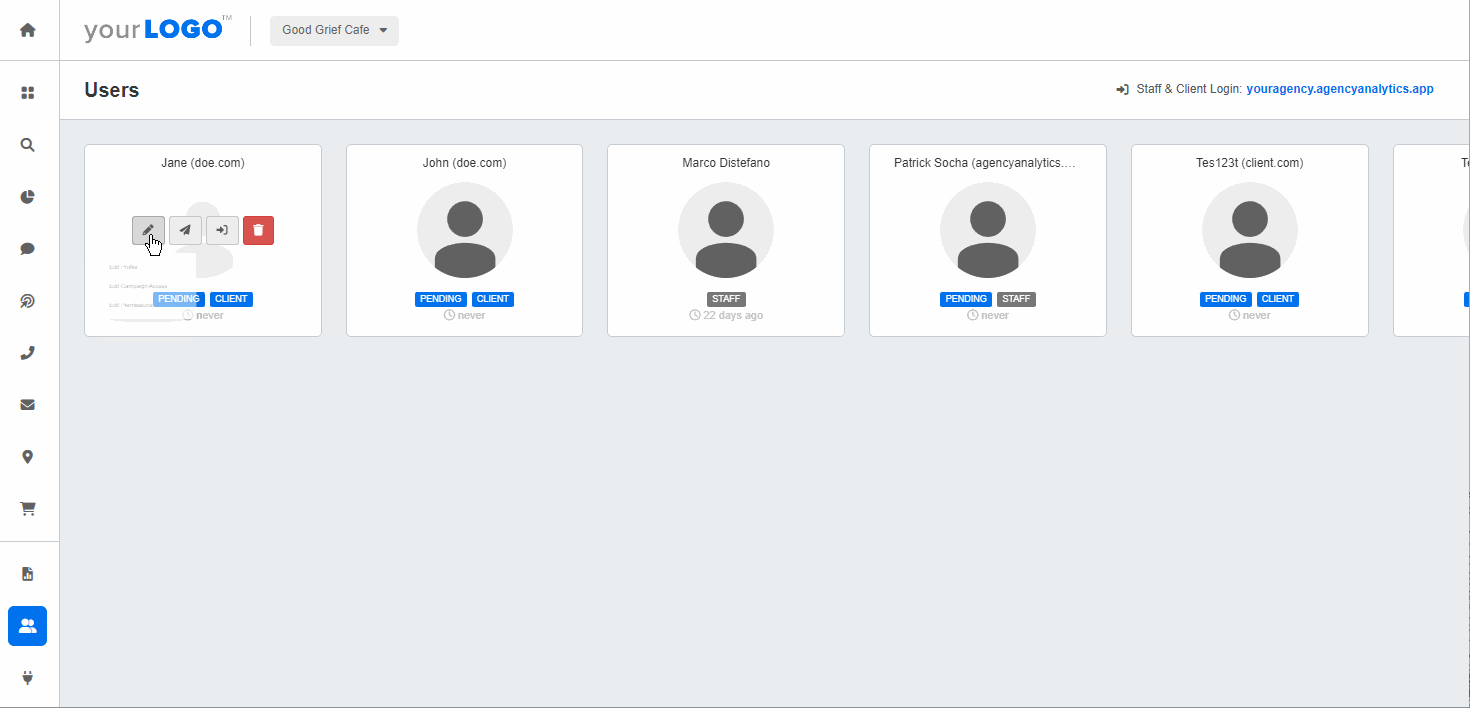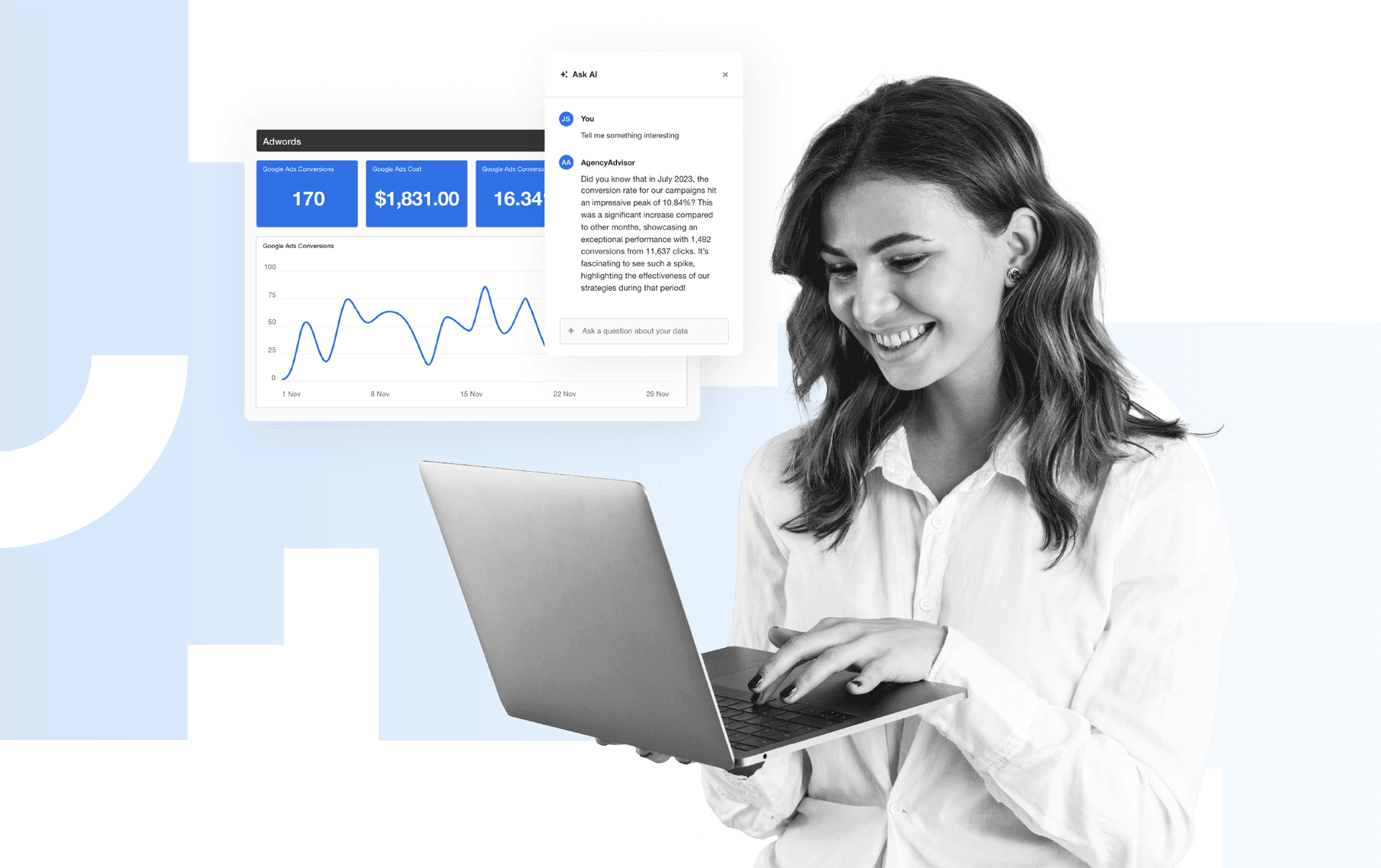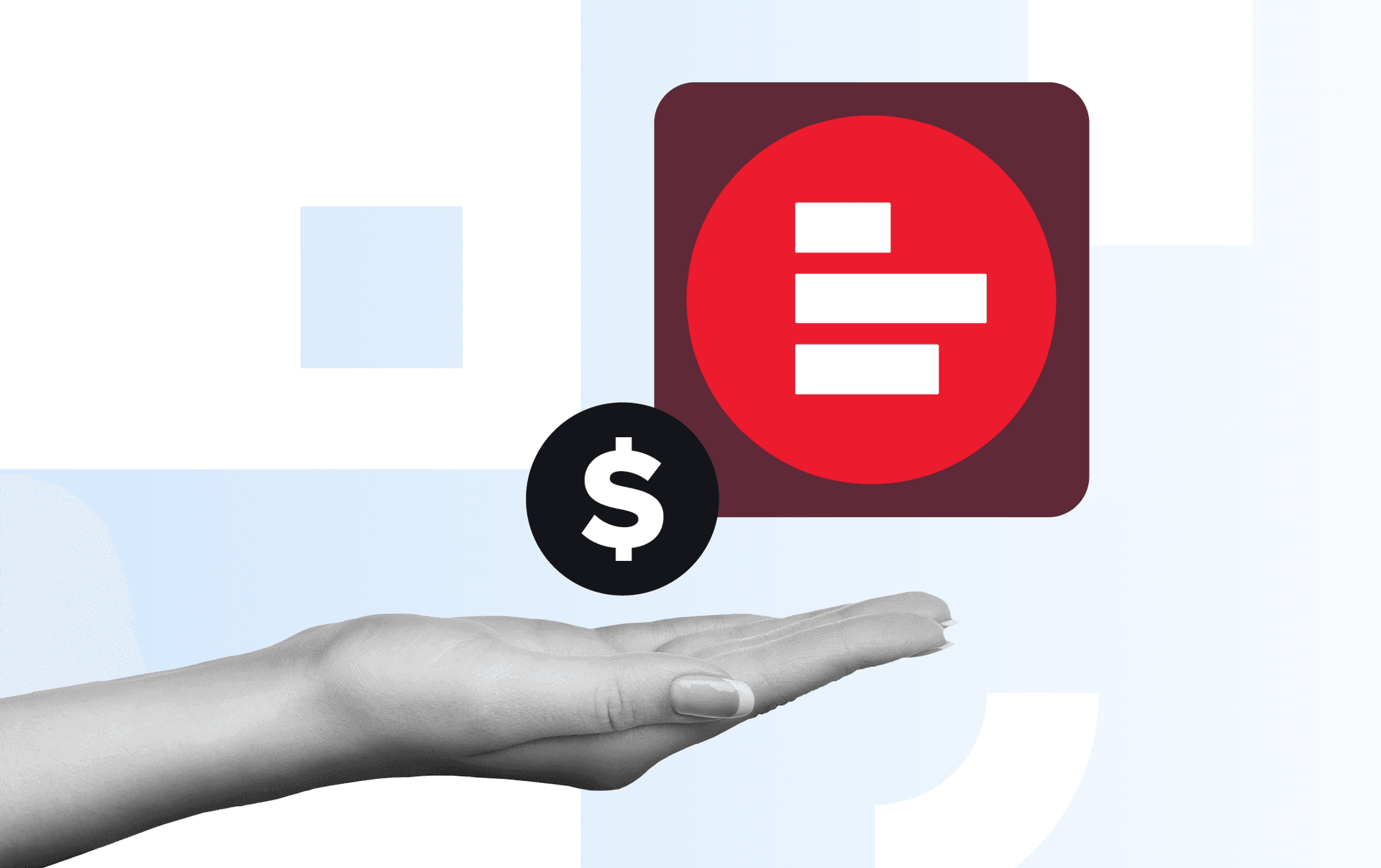Table of Contents
Imagine one of your steady, long-term clients terminating their partnership with your agency. This news might hit like a shockwave, interrupting your regular workflow and leaving you with unanswered questions. Yes, you might already be familiar with some of their concerns, but nothing seemed big enough to bring the relationship to a screaming halt. The root cause for their exit remains elusive, and you’re left confused in its wake.
Enter client exit interviews.
Client exit interviews might feel awkward, but the reality is that they present a golden opportunity to gain valuable insights that can positively shape the future of your marketing agency. Rather than viewing them as just another formality or a parting dialogue, think of them as opportunities.
These interviews provide a unique glimpse into your clients' minds, revealing what worked, what didn't, and how your agency can enhance its services.
This article covers the vital importance of client exit interviews and how they help propel your marketing agency to new heights. We’ll look at:
Why Client Exit Interviews Matter
Client exit interviews help you discern what makes your agency sparkle and what areas need a bit more polish. They are important for marketing agencies that want to gauge what is working well and what needs improvement from their clients’ perspectives.
Exit interviews are critical because we learn the most from the clients that we have the most opportunities for improvement, and we love to compare and contrast that with the clients we're crushing it with.
Josh Kimmes, CEO of Bear North Digital
The primary purpose of client exit interviews is to gain a candid understanding of why clients choose to leave, highlighting areas where your team may have fallen short.
By identifying these pain points, your agency has the opportunity to make data-driven improvements to enhance customer success, services and retain current clients.
Regardless of the reason they're leaving your agency (good or bad), getting valuable feedback on your team, processes, results, etc. can provide insightful actions about how you can do better and delight customers even more. Plus, if you get some great, positive feedback this can also be an opportunity to request a testimonial or even a case study.
Nathan Reiche, CEO & Founder of Content Chemistry
That being said, not all clients leave because they are unhappy with your agency’s services. Perhaps it’s financial constraints, business changes, bringing the activities in-house, or the job has simply been completed and the contract has ended.
We had a client that was significant [to our bottom line]. They got acquired by a new owner and the first thing they did was fire all the vendors. It was out of our control, but that happens.
Trevor Shirk, CEO & Founder of Terrayn Dispensary Marketing
The agency-client relationship is a two-way street, and it’s important to recognize that a client departure isn’t always a bad thing. For example, if your agency is dealing with a toxic client, an exit interview may reveal some early warning signs that might help you avoid similar situations in the future.
How Client Exit Interviews Benefit Agencies
Client exit interviews benefit marketing agencies by providing actionable feedback, enhancing customer understanding, identifying systemic issues, and showcasing a commitment to client satisfaction and improvement.
Here are some of the top benefits that marketing agency owners have identified:
1. Gauging Client Expectations
Collecting feedback through exit interviews gives your agency valuable insights into specific client expectations that were not met. This helps you to better understand and align your services to meet client needs going forward. Perhaps you need to adjust your agency’s value proposition, internal processes, or pricing structure.
Clients expect and demand proactivity. When an agency learns to expect a client's need and determines how to address issues before they become critical mass; often there won't be a need for exit interviews.
Vine Schwellenbach, CEO of Macbach Healthcare Solutions
2. Identifying Trends
When your agency hears the same thing from multiple clients, it’s time to sit up and take notice. While you hopefully won’t need to conduct too many client exit interviews, being able to compare and contrast responses from a number of different conversations helps you analyze common reasons for clients leaving and identify patterns or recurring issues that may be impacting overall client satisfaction.
The single biggest lesson for me was not a one-off particular reason from a certain client, but rather a trend whereby multiple clients gave the same reason. In this instance, it was the fact that clients did not understand our reports—this was the main reason we switched to AgencyAnalytics and, since then, our clients have been very happy!
Dr. Richard Girling, CEO of Red Castle Services INC.

Streamline your entire reporting process with an all-in-one reporting tool that lets you manage all your clients in one place. Start your 14-day free trial to manage your agency at scale.
3. Gaining Competitor Insights
While customer exit interviews are a valuable opportunity to gather transparent feedback, they also help your agency learn about potential competitors. If the client is leaving for another agency, these interviews give you the chance to dig into what competing agencies are offering that your agency does not.
The biggest benefit of client exit interviews is transparency. The more open and honest we are with our clients, the more we get in return. Right down to what our competitors are willing to charge in order to steal our contracts.
Adam Palmer, President of Inertia Digital Marketing
4. Client Retention
Actively listening to clients' feedback during exit interviews helps identify what’s gone wrong and how to focus on doing things right for your other clients, therefore enhancing overall client retention. Proactively addressing concerns and improving service offerings accordingly may prevent you from conducting more exit interviews in the future.
We spend a fair amount of time and energy making sure that the clients are on the same page with what's being accomplished and what results we're seeing.
Nathan Hawkes, President of Arcane Marketing
5. Strengthening Your Agency’s Reputation
By the time a client decides to leave, the relationship has often been strained for some time. Tensions have risen, tempers may have flared, and heated emails may have been exchanged. The exit interview presents an opportunity to clear the air and eliminate hard feelings by highlighting your commitment to understanding your clients' perspectives. The goal is to address their concerns so that you end the relationship on a positive note. This helps build trust, and foster positive word-of-mouth referrals, which helps your agency get more clients to replace the one that just churned.
Other than generating positive reviews, our agency has improved our reputation with informative blog articles, social media posts and activity, as well as keeping in touch with previous customers.
Anya Curry, Owner of Ambidextrous Services
When To Conduct Client Exit Interviews
Some of the most common challenges marketing agencies face are ongoing. And if they’re left unchecked, they end up costing your agency a lot of time and money to recover. Time is of the essence when it comes to conducting client exit interviews.
By choosing the right moment and approaching a client with sensitivity, your agency increases the effectiveness of these highly valuable conversations.
Client exit interviews should ideally take place as soon as the client expresses their decision to terminate the relationship or provides notice of canceling their services.
Scheduling the interview promptly ensures that the client's experience with your marketing agency is fresh in their mind, increasing the chances of gathering accurate and detailed feedback. Waiting too long may result in the client's memories fading or their opinions being influenced by other factors.
That being said, it's essential to strike a balance between acting swiftly and allowing the client enough time to process their decision.
Agency Tip: Aim to schedule the interview shortly after the client's notice is received while being considerate of their preferred timeline. This highlights your agency's commitment to addressing concerns promptly and shows respect for the client's decision.
What’s the Difference Between Exit Interviews and Exit Surveys?
Client exit interviews and client exit surveys are two different ways to gather feedback from clients.
Client exit interviews are often a one-on-one conversation with the client–whether it's in-person, over the phone, or on a Zoom call. An interview format is more personal as it has more open-ended questions where your agency can get a deeper, contextual understanding of the reasons why they’re leaving. However, conducting interviews can be time-consuming and may not be physically possible for your agency if you have clients around the world.
Client exit surveys are a helpful option to gain feedback from your clients even if you don’t have the dedicated time for a full exit interview. An exit survey is typically set up with a list of standardized questions, giving your agency statistical data that is easy to analyze and compare across the board. For example, the questions in an exit survey may be in a multiple-choice or rating scale format.
The following table outlines the strengths and potential limitations of both the customer exit interview and customer exit survey processes. While each method has its merits, the key is to understand your agency's goals and the type of customer feedback you're seeking to obtain the most valuable insights.
Aspect | Exit Interview | Exit Survey |
|---|---|---|
Nature | Interactive | Non-interactive |
Feedback Depth | Detailed and comprehensive feedback based on conversations | Often limited to predefined questions |
Time Requirement | Generally longer, given the conversation-driven approach | Typically quicker as customers can answer at their own pace |
Honest Feedback | Direct dialogue can yield more candid insights | May be less candid due to lack of interpersonal connection |
Flexibility | Can adapt questions based on the particular customer's responses | Fixed set of questions |
Customer Experience | Allows for clarification and can improve customer experience | No room for immediate clarification |
Effort to Conduct | Requires trained personnel to conduct exit interviews | Easier to disseminate through a digital customer exit survey process |
Response Rate | Might be lower due to the time commitment required | Generally higher due to convenience |
Feedback Analysis | Qualitative data may take longer to analyze but is rich in insights | Quantitative data can be faster to analyze but might lack depth |
Application | Ideal for deep dives into why canceled customers left | Great for gathering general feedback from a larger audience |
Utility for Future Customers | Feedback can be instrumental in refining the experience for future customers | Collective data helps in spotting patterns for future improvements |
Personal Touch | Personalized approach can strengthen relations despite the customer exit | Impersonal nature might not capture the essence of the feedback |
For many agencies, understanding why a customer decides to leave is crucial in refining their services and preventing future churn. A two-pronged approach–utilizing customer exit surveys and conducting in-depth exit interviews–is an effective way to achieve this.
Customer exit surveys provide a streamlined way to gather general feedback from churning customers. These often consist of standardized questions identifying common patterns or reasons for departures. For instance, a customer cancellation survey can quickly highlight if most clients leave due to a similar negative experience or service gap.
However, while these surveys give an overview, they might need to capture the nuanced reasons or unique circumstances behind a particular customer's decision to depart. That's where exit interviews come into play. These interviews allow agencies to have a more personal and detailed conversation with a churning customer. By engaging in a direct dialogue, agencies can delve deeper into specific areas of concern that might have yet to be evident in the broader survey.
For example, if a customer cancellation survey indicates dissatisfaction with communication, an exit interview can pinpoint if the frequency, clarity, or medium of communication was the actual pain point.
By combining the broad scope of exit surveys with the depth of exit interviews, agencies can understand common and unique reasons for customer departures, empowering them to take targeted actions to enhance their services and minimize future losses.
Agency Tip: If you’re thinking of a way to get the best out of both exit interviews and exit surveys, there are tools available that give you the option to combine long and short-form questions with multiple-choice and even video questions in some circumstances.
How To Ask for Client Exit Interviews
Reaching out to a client about the exit interview requires a tactful and empathetic approach. The objective is to communicate genuine interest in understanding their perspective while also respecting their decision to leave.
Here are some key points on conducting customer exit interviews:
Express Appreciation
Begin by expressing gratitude for the client's previous collaboration and acknowledge their contribution to your agency's growth. This sets a positive tone and emphasizes the value your agency places on their feedback.
It helps clients feel like sharing their opinion could help spur organizational shifts to improve the experience for future clients, versus ending up in a virtual suggestion box.
Amanda Stephens, VP of Operations at seoplus+
Emphasize Improvement and Growth
Frame the purpose of the exit interview as an opportunity for your agency to learn, improve, and provide better services in the future. Assure the client that their feedback will be taken seriously and used to enhance your service offerings and communication.
Respect Boundaries
Acknowledge the client's decision to leave and make it clear that the purpose of the interview is not to persuade them to stay. Respect their choice while emphasizing your commitment to ensuring a positive experience for all clients.
Remember, the goal is to understand the client's perspective, learn from their experiences, and use that knowledge to improve your agency going forward.
The Takeaway
In business and in personal life experiences, the biggest opportunities for growth are often characterized by a certain amount of discomfort. Client exit interviews are not always a pleasant discussion to have, but if your marketing agency embraces them as a learning experience, you’ll only benefit in the long run.
Take the opportunity to gather some constructive feedback from your clients and then focus on driving even better results as you step into the future.
Like this article? Client and staff management tools help your agency monitor marketing campaigns, communicate with clients, and assign tasks to team members.

Manage your clients and your staff in one place. Start your 14-day free trial to begin managing your team in the most scalable way possible.

Written by
Richelle Peace is a writer with a degree in Journalism who focuses on web content, blog posts, and social media. She enjoys learning about different topics and sharing that knowledge with others. When she isn’t writing, Richelle spends time teaching yoga, where she combines mindfulness, movement, and her passion for wellness.
Read more posts by Richelle PeaceSee how 7,000+ marketing agencies help clients win
Free 14-day trial. No credit card required.






